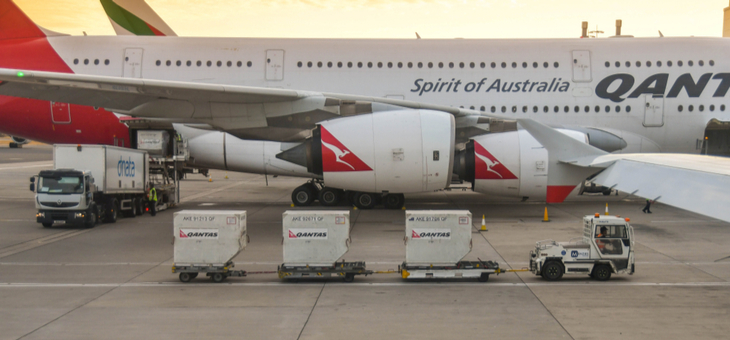Global financial investment service Moody’s predicts Qantas will recover much quicker from the pandemic that its competitors, but that isn’t necessarily good news for Australian flyers.
A report from Moody’s Investors Service doesn’t expect global air passenger demand to recover fully until 2023, but Qantas will recover much faster than its peers in the industry due to the unique situation in Australia.
One of the leading reasons Qantas is so well placed is the fact that Australia and New Zealand have controlled the outbreak far better than most developed countries, reaping the rewards of early border closures and compulsory 14-day quarantine periods.
That is the good news. The other reasons why Moody’s expects to see Qantas soaring post-pandemic is the fact that flying is one of the only viable means of transport and the concern about the future of Virgin Airlines, despite the recent takeover by US private equity firms.
This suggests that passengers looking for domestic travel options will opt for the security of Qantas while uncertainty remains over Virgin, and they could be expected to pay a much higher premium as a result.
According to the report, domestic flights were responsible for around 80 per cent of Qantas’s earnings last financial year, with the lower margins on the international flights accounting for just 20 per cent.
“As Qantas ramps up capacity from July, we expect ongoing uncertainty related to Virgin to benefit Qantas, improving cash flow and profitability,” the report explained.
Qantas Group chief executive Alan Joyce had said that there was a lot of “pent up demand for air travel” and that the airline was already seeing a big increase in bookings and flight planning for the coming weeks and months.
The report also expects the controlled COVID-19 numbers across Australia and New Zealand to lead to an opening of the trans-Tasman bubble by September with no quarantine requirement.
There is also going to be a lack of competition on the trans-Tasman flights when the bubble is in operation, according to Moody’s.
The report indicated that Air New Zealand had about 40 per cent of the trans-Tasman capacity, Qantas 34 per cent and Virgin around 18 per cent. The other 8 per cent was made up of Singapore Airlines, China Airlines, Emirates and other airlines that will not be back in the market until international borders open up further at some point in 2021.
“There is also uncertainty as to if and when Virgin will resume flights and to what extent it will participate in the trans-Tasman route,” the report explained.
Do you expect to pay much more for flights now that Qantas can operate with less competition? Are you worried you won’t be able to afford to travel in the future because of uncertainty over the future of Virgin and other low-cost carriers?
If you enjoy our content, don’t keep it to yourself. Share our free eNews with your friends and encourage them to sign up.
Related articles:
https://www.yourlifechoices.com.au/travel/news/we-love-vilnius-new-travel-campaign
https://www.yourlifechoices.com.au/travel/self-drive-holidays/ubers-car-rental-option
https://www.yourlifechoices.com.au/travel/travel-qanda/do-you-need-a-border-passport

